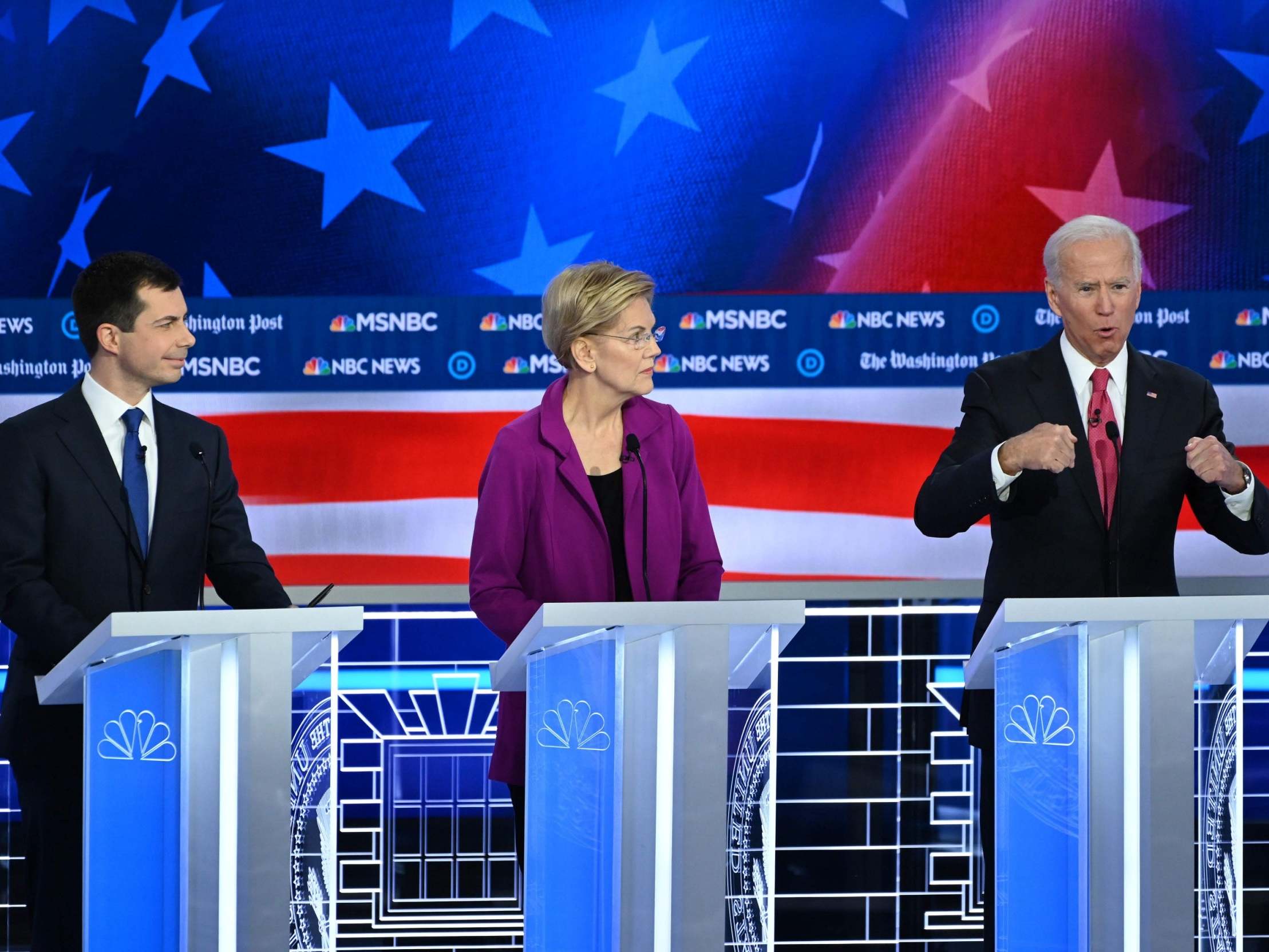Why this DC resident with a ‘wasted vote’ is ‘disenchanted’ with congress ahead of 2020
‘In DC, it’s just like the licence plates: taxation without representation’

Like many folks residing in the nation’s capital, Deanna Joy Williams is a transplant.
The 48-year-old public relations professional has lived on the east coast her entire life, having been born and raised in Philadelphia and later studying in Hampton, Virginia.
She moved to New York in 1994, where she lived in close proximity to her congressman and was even familiar with senator Chuck Schumer.
“It was easy to approach them and feel like they were doing something for the communities they served, and they’d been in congress for so long I knew they were both respected voices,” she says while recalling her time in the Big Apple.
But that all changed when she moved to Washington, DC in October 2015.

Whereas Williams once felt like she could contact her representatives about important issues and have her concerns reflected in national politics, she says she has since become “disenchanted” by the entire process.
“I have a wasted vote,” she says about living in Washington. “A totally wasted vote.”
“In DC, it’s just like the licence plates: taxation without representation,” she adds. “We have a representative and a senator, so to speak, who are able to sit in on meetings and they can verbalise opinions, but they don’t have a vote. So, regardless of what I feel … it’s not going to be heard because we don’t have a vote.”
The capital’s lack of representation is a conundrum for many of the Americans who call it home. While DC has voted to become a state, it lacks a senator and only has delegates with limited voting privileges.
It would take a constitutional amendment in order for Washington to become a state – a lengthy process that typically requires a two-thirds majority vote in both the House of Representatives and the Senate. Otherwise, two-thirds of the nation’s state legislatures would have to call for a constitutional convention.
Despite its lack of representation, DC – a diverse district – consistently votes overwhelmingly Democrat. With a Republican majority controlling the Senate, there is slim chance of it becoming a state anytime soon.
On the bright side, Washington residents can vote for the president; the district has three electoral votes in the presidential election and turnout has risen in recent election cycles.
Unfortunately for Williams, she says she doesn’t see a strong candidate on the 2020 campaign trail who she wants to support.
“Quite honestly, I’m not impressed by any of them individually,” she says. “If we could take some of them and make one person, I think that would be very helpful.”
When asked which candidates she’d group together to create a fictional superhero-like presidential nominee, Williams names Julian Castro, Kamala Harris (who has since dropped out of the race), Elizabeth Warren and Andrew Yang.
Separately, Williams can’t help but notice some obvious weaknesses in each of them.
“Elizabeth Warren has a lot of lofty ideas about how she’s going to exclude corporate dollars, but you’re not going to be able to do that if you want to win. So, she’s going to have to make concessions there,” she says.
She adds: “Andrew Yang…he’s just fresh, he’s thinking differently … and then Julian Castro has the benefit of being inside Washington as a cabinet member. Is there something familial about him that I can connect with? Definitely.”

Williams says the top issues she’s focusing on in 2020 are education and healthcare, which she believes “go hand in hand”.
She wants to see major reforms that totally revamp both systems and create long-term solutions to some of the biggest problems the country is facing.
“If we improved our education across the board … that would contribute to being knowledgeable about some of the health factors out there to avoid or fix early on, mental health included,” she says. “Healthcare and education are very important to me, but I also see the state of the world and how we contributed to it. My first concern is: can we just get this man out?”
I ask if Williams is referring to Donald Trump. She immediately interjects: “He’s horrible. I mean, there’s nothing redeeming about him. The longer he is in his seat as president, the more we see that he has absolutely no regard for the constitution, which is supposed to be our bible, so to speak.”
Williams says she’s going to vote for whoever becomes the Democratic nominee after the primary process.
“After he’s removed from office – my mouth to God’s ear – I’ll see what they’re going to do in terms of everything else,” she adds.
I notice Williams doesn’t ever say the name of the president out loud, even though she refers to him often.
“With the incumbent, he doesn’t fight or attack on the real issues, so basically it’s name-calling, and we’re 13-year-olds in eighth grade again, so I will completely disregard him about his comments on any of the candidates,” she continues. “It’s very immature, very infantile, it’s like: shut up already!”
I ask her if she isn’t mentioning the president’s name on purpose.
“Yes,” she responds. “I try to avoid it, but I just feel like every other president in my lifetime brought a certain level of dignity and respect to the office. … I always thought they respected the office of the president. So I won’t be disrespectful or call him out by his name … he’s just the incumbent – for now.”
Join our commenting forum
Join thought-provoking conversations, follow other Independent readers and see their replies
Comments
Bookmark popover
Removed from bookmarks